Sustainability Advisory Services

List of Content
Net Zero Strategy
The recent Intergovernmental Panel on Climate Change (IPCC) findings stress the importance of limiting global warming to 1.5°C to prevent severe consequences for both people and the environment. Their recommendation involves reaching a peak in emissions by 2025 and then cutting emissions in half every decade up to 2050, with the first halving taking place by 2030. This guideline, known as the Carbon Law, applies to everyone–from companies and cities to nations and citizens.
Genesis sustainability team’s primary objective is to provide businesses and organizations with the necessary guidance to develop and execute effective strategies that lead to net-zero emissions. We are committed to assisting our clients in navigating the complexities of sustainability and offering strategic direction to ensure their objectives align with net-zero targets as per Science Based Target Initiatives (SBTi) guidance. Utilizing our expertise and customized approach, we empower organizations to diminish their environmental footprint, gain a competitive edge, attract investors, and contribute to a more sustainable economy.
Genesis sustainability team’s primary objective is to provide businesses and organizations with the necessary guidance to develop and execute effective strategies that lead to net-zero emissions. We are committed to assisting our clients in navigating the complexities of sustainability and offering strategic direction to ensure their objectives align with net-zero targets as per Science Based Target Initiatives (SBTi) guidance. Utilizing our expertise and customized approach, we empower organizations to diminish their environmental footprint, gain a competitive edge, attract investors, and contribute to a more sustainable economy.


Genesis Sustainability Approach
Materiality Assessment and Analysis — We conduct rigorous assessments using International Sustainability Standards Board (ISSB) framework to evaluate current operations, energy usage, waste management, and carbon emissions to identify areas for improvement and opportunities to reduce environmental impact.
Goal Setting — Collaborating closely with clients, we establish ambitious yet achievable sustainability goals, including targets for reducing greenhouse gas emissions, enhancing energy efficiency, and minimizing waste generation.
Strategy Development — We work with organizations to design tailored sustainability strategies that align with their goals and industry standards, incorporating measures such as renewable energy adoption, energy-efficient technologies, waste reduction, and water conservation.
Roadmap Implementation Support — Our team offers continuous guidance and support during the implementation phase, aiding organizations in integrating sustainable practices into their operations, such as supplier engagement, energy management systems, and monitoring and reporting mechanisms.
Stakeholders Engagement and Training — Emphasizing the significance of internal and external stakeholder engagements, we provide training programs to raise awareness and build capacity within the organization, fostering a culture of sustainability and ensuring commitment to reducing environmental impact.
Monitoring and Reporting — We assist organizations in establishing effective monitoring systems to track progress, including regular data collection, analysis, and reporting in compliance with International Financial Standard Board (IFRS) and Corporate Standard Reporting Directives (CSRD) to demonstrate environmental performance and identify areas for improvement.
Goal Setting — Collaborating closely with clients, we establish ambitious yet achievable sustainability goals, including targets for reducing greenhouse gas emissions, enhancing energy efficiency, and minimizing waste generation.
Strategy Development — We work with organizations to design tailored sustainability strategies that align with their goals and industry standards, incorporating measures such as renewable energy adoption, energy-efficient technologies, waste reduction, and water conservation.
Roadmap Implementation Support — Our team offers continuous guidance and support during the implementation phase, aiding organizations in integrating sustainable practices into their operations, such as supplier engagement, energy management systems, and monitoring and reporting mechanisms.
Stakeholders Engagement and Training — Emphasizing the significance of internal and external stakeholder engagements, we provide training programs to raise awareness and build capacity within the organization, fostering a culture of sustainability and ensuring commitment to reducing environmental impact.
Monitoring and Reporting — We assist organizations in establishing effective monitoring systems to track progress, including regular data collection, analysis, and reporting in compliance with International Financial Standard Board (IFRS) and Corporate Standard Reporting Directives (CSRD) to demonstrate environmental performance and identify areas for improvement.
Our Approach
Strategy Development — We work closely with our clients to understand their unique needs and goals. By conducting in-depth assessments of their current operations and market dynamics, we develop customized circularity strategies outlining the steps needed to transform their business models, supply chains, and product design to embrace circular principles.
Stakeholder Engagement — Successful transition to circularity requires collaboration and engagement with various stakeholders. We facilitate workshops, forums, and discussions to foster dialogue and build partnerships among businesses, government entities, NGOs, and consumers, ensuring a shared vision and collective action towards a circular economy.
Circular Design and Innovation — We leverage Genesis Advanced Demanufacturing solutions to assist organizations in redesigning their products and services to minimize waste and maximize resource efficiency. Our experts help incorporate circular design principles, such as modular design, recycled materials, and product life extension while encouraging innovation through new business models like product-as-a-service and sharing economy platforms.
Supply Chain Optimization — By analyzing our clients’ supply chains, we identify opportunities for circularity. We promote closed-loop systems and encourage supplier collaboration, helping businesses achieve greater resource efficiency and reduce environmental impacts throughout the value chain.
Stakeholder Engagement — Successful transition to circularity requires collaboration and engagement with various stakeholders. We facilitate workshops, forums, and discussions to foster dialogue and build partnerships among businesses, government entities, NGOs, and consumers, ensuring a shared vision and collective action towards a circular economy.
Circular Design and Innovation — We leverage Genesis Advanced Demanufacturing solutions to assist organizations in redesigning their products and services to minimize waste and maximize resource efficiency. Our experts help incorporate circular design principles, such as modular design, recycled materials, and product life extension while encouraging innovation through new business models like product-as-a-service and sharing economy platforms.
Supply Chain Optimization — By analyzing our clients’ supply chains, we identify opportunities for circularity. We promote closed-loop systems and encourage supplier collaboration, helping businesses achieve greater resource efficiency and reduce environmental impacts throughout the value chain.
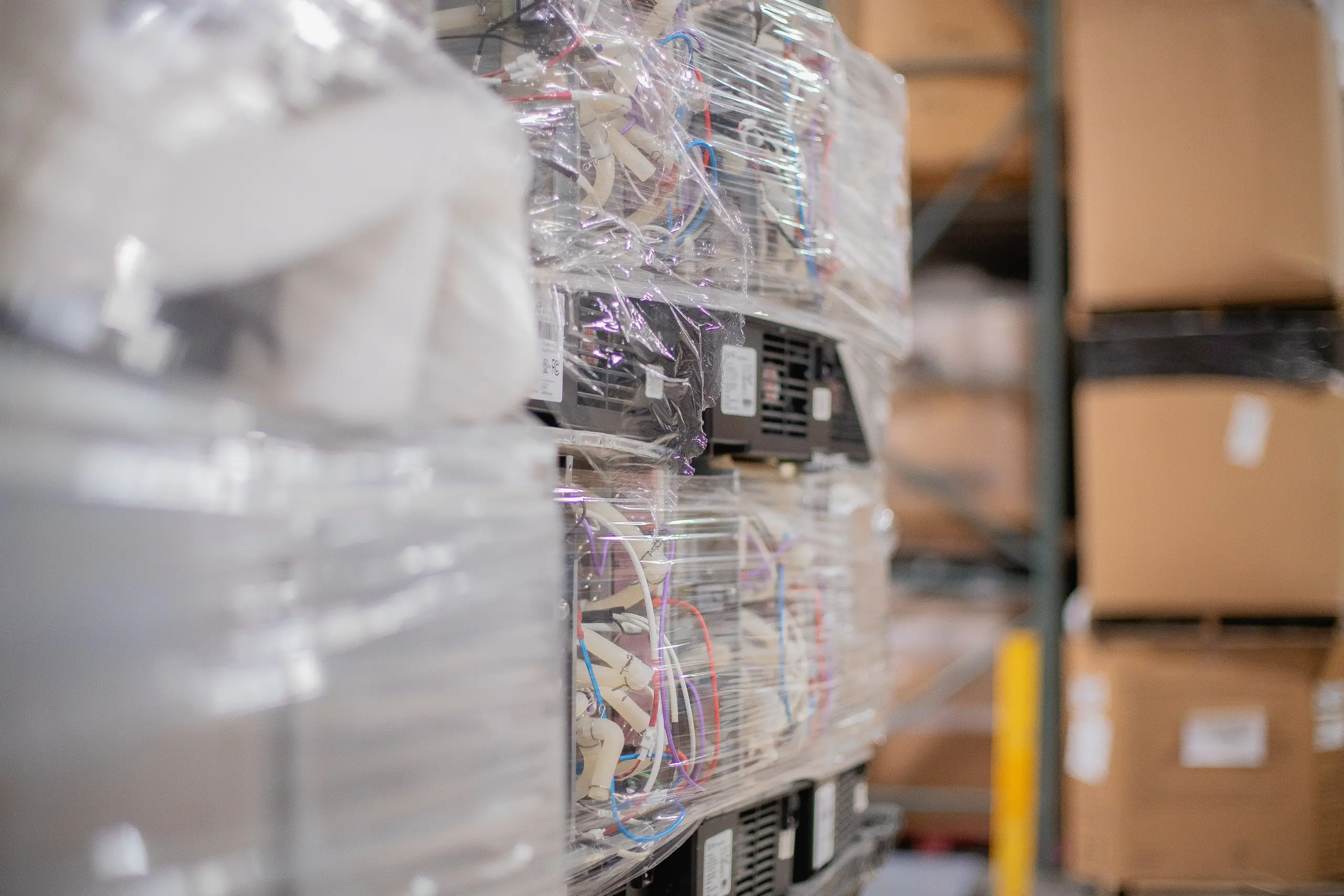

Our Approach to Life Cycle Assessment
Scoping and Goal Definition — We collaborate with clients to define the scope and goals of the life cycle assessment, determining system boundaries, functional units, and impact categories to be considered.
Data Collection and Analysis — We assist organizations in collecting relevant data on energy consumption, raw material inputs, emissions, waste generation, and other environmental aspects throughout the life cycle of their products or processes. Our experts analyze this data to quantify the environmental impacts associated with each stage. Impact
Assessment and Interpretation — We evaluate environmental impacts using established assessment methods, providing actionable insights and recommendations for reducing environmental footprints.
Improvement Strategies and Implementation — Based on the life cycle assessment findings, we develop tailored strategies and action plans to minimize environmental impacts. This may involve optimizing energy use, improving material selection, implementing recycling and waste management programs, and adopting cleaner production techniques while supporting organizations in implementing these strategies and monitoring their progress.
Training and Capacity Building — We offer training programs and workshops to enhance our clients’ understanding of life cycle assessment and build their internal capacity to drive continuous improvement through integrating LCA into their decision-making processes.
Data Collection and Analysis — We assist organizations in collecting relevant data on energy consumption, raw material inputs, emissions, waste generation, and other environmental aspects throughout the life cycle of their products or processes. Our experts analyze this data to quantify the environmental impacts associated with each stage. Impact
Assessment and Interpretation — We evaluate environmental impacts using established assessment methods, providing actionable insights and recommendations for reducing environmental footprints.
Improvement Strategies and Implementation — Based on the life cycle assessment findings, we develop tailored strategies and action plans to minimize environmental impacts. This may involve optimizing energy use, improving material selection, implementing recycling and waste management programs, and adopting cleaner production techniques while supporting organizations in implementing these strategies and monitoring their progress.
Training and Capacity Building — We offer training programs and workshops to enhance our clients’ understanding of life cycle assessment and build their internal capacity to drive continuous improvement through integrating LCA into their decision-making processes.
Approach to Sustainability Reporting
✔ Materiality Assessment: We conduct thorough materiality assessments to identify the critical sustainability issues most relevant to our clients’ businesses and stakeholders, allowing them to focus on areas that truly matter.
✔ Data Collection and Verification: We guide organizations in collecting relevant data on their environmental, social, and governance performance and ensure accuracy and reliability through rigorous auditing processes.
✔ Reporting Framework Selection: We assist organizations in selecting the most appropriate sustainability reporting frameworks, ensuring alignment with industry standards, stakeholder expectations, and regulatory requirements.
✔ Report Preparation and Communication: Our experts specialize in preparing comprehensive sustainability reports that effectively communicate our clients’ ESG performance, enabling them to present their achievements, challenges, and future goals transparently and engagingly to stakeholders.
✔ Continuous Improvement: We advocate continuous improvement in sustainability reporting, helping organizations identify areas for enhancement, set progress targets, and establish robust mechanisms for ongoing monitoring and review to demonstrate commitment to transparency and accountability. We precisely tailored solutions to your industry needs and are fully committed to driving positive change and enabling organizations to thrive sustainably and responsibly.
✔ Data Collection and Verification: We guide organizations in collecting relevant data on their environmental, social, and governance performance and ensure accuracy and reliability through rigorous auditing processes.
✔ Reporting Framework Selection: We assist organizations in selecting the most appropriate sustainability reporting frameworks, ensuring alignment with industry standards, stakeholder expectations, and regulatory requirements.
✔ Report Preparation and Communication: Our experts specialize in preparing comprehensive sustainability reports that effectively communicate our clients’ ESG performance, enabling them to present their achievements, challenges, and future goals transparently and engagingly to stakeholders.
✔ Continuous Improvement: We advocate continuous improvement in sustainability reporting, helping organizations identify areas for enhancement, set progress targets, and establish robust mechanisms for ongoing monitoring and review to demonstrate commitment to transparency and accountability. We precisely tailored solutions to your industry needs and are fully committed to driving positive change and enabling organizations to thrive sustainably and responsibly.


Electronic Sector Feasibility Study by Genesis
Electronics consumption is increasing due to digitalization and a growing global middle class. However, this leads to adverse environmental impacts, such as high demand for raw materials, substantial energy use, and electronic waste. Transitioning to a circular economy in the electronics industry can address these challenges and generate value. The electronics sector is responsible for a significant share of global greenhouse gas emissions, equivalent to the fashion industry.
There are flaws in the linear economy, which are remedied within a circular economy model. It presents the concept of the circular economy, its principles, and its benefits. The section also introduces a report that analyzes the climate and financial benefits of adopting a circular business model in the electronics industry.
✔ The linear economy follows a take-make-waste principle, leading to waste, environmental harm, and high costs.
✔ The circular economy maximizes resource efficiency and promotes reuse, recycling, and refurbishment.
✔ It seeks to decouple economic activity from the consumption of finite resources and reduce carbon emissions.
✔ The report analyzes three circular business models in the electronics industry and finds that they are more cost-effective and reduce CO2e compared to the linear model.
✔ Implementing a circular strategy can lead to an average of 12% cost savings and 10% CO2e emissions reduction.
✔ Different circular strategies excel in various segments of the electronics industry.
✔ Each circular business model requires initial investment and business transformation.
✔ Combining circular strategies can achieve higher cost and CO2e savings.
There are flaws in the linear economy, which are remedied within a circular economy model. It presents the concept of the circular economy, its principles, and its benefits. The section also introduces a report that analyzes the climate and financial benefits of adopting a circular business model in the electronics industry.
✔ The linear economy follows a take-make-waste principle, leading to waste, environmental harm, and high costs.
✔ The circular economy maximizes resource efficiency and promotes reuse, recycling, and refurbishment.
✔ It seeks to decouple economic activity from the consumption of finite resources and reduce carbon emissions.
✔ The report analyzes three circular business models in the electronics industry and finds that they are more cost-effective and reduce CO2e compared to the linear model.
✔ Implementing a circular strategy can lead to an average of 12% cost savings and 10% CO2e emissions reduction.
✔ Different circular strategies excel in various segments of the electronics industry.
✔ Each circular business model requires initial investment and business transformation.
✔ Combining circular strategies can achieve higher cost and CO2e savings.
The Potential Benefits and Advantages of Implementing Circular Business Models
✔ The electronics industry has a global supply chain, but disruptions can lead to significant losses.
✔ Electronic products have high value and durability, making them suitable for circular business models.
✔ The industry relies on scarce, non-renewable materials, which can be responsibly recovered through circularity.
✔ Circular business models allow producers to target a broader range of customers and markets.
✔ The electronics industry faces increasing scrutiny regarding environmental and social responsibility.
✔ Electronic products have high value and durability, making them suitable for circular business models.
✔ The industry relies on scarce, non-renewable materials, which can be responsibly recovered through circularity.
✔ Circular business models allow producers to target a broader range of customers and markets.
✔ The electronics industry faces increasing scrutiny regarding environmental and social responsibility.


The Growing Importance of Remanufacturing in the Automotive Electronics Industry and Its Potential for Cost and CO2e Savings
✔ The automotive electronics sector is expected to grow due to increased automation and digitalization.
✔ The rising popularity of electric and automated vehicles drives the demand for automotive electronics.
✔ Remanufacturing is the best circular business model for the automotive electronics industry.
✔ Remanufacturing offers a 12% reduction in costs and a 5% reduction in CO2e.
✔ The most significant cost and CO2e savings are in raw materials extraction.
✔ Logistics costs and CO2e emissions increase in the remanufacturing process.
✔ Significant savings occur in the end-of-life stage.
✔ The rising popularity of electric and automated vehicles drives the demand for automotive electronics.
✔ Remanufacturing is the best circular business model for the automotive electronics industry.
✔ Remanufacturing offers a 12% reduction in costs and a 5% reduction in CO2e.
✔ The most significant cost and CO2e savings are in raw materials extraction.
✔ Logistics costs and CO2e emissions increase in the remanufacturing process.
✔ Significant savings occur in the end-of-life stage.
The Relevance of Consumer Electronics and the Demanufacturing Service Sustainability Model
✔ Consumer electronics significantly impact communication, entertainment, productivity, and daily living.
✔ This report focuses on “black goods” such as smartphones, televisions, computers, and gaming consoles.
✔ PaaS strategy can lead to cost savings of ~27% and CO2e savings of ~36% in consumer electronics.
✔ Raw material extraction and production contribute to most emissions in devices like smartphones and laptops.
✔ Prolonging the life of products and implementing remanufacturing models can reduce raw material extraction and emissions.
✔ The current lifespan of smartphones is shorter than their designed and desired lifetime, requiring changes in design and marketing.
✔ Device-as-a-service models offer benefits such as device management, increased device lifecycles, and business flexibility.
✔ The consumer electronics industry focuses on product innovation, sustainability, and reducing electronic waste.
✔ The used smartphone market is growing rapidly, creating opportunities for circular business models and reducing environmental impact.
✔ Extending the lifetime of electronic products in the EU by one year could save around 4 million tonnes of carbon dioxide by 2030.
✔ Remanufacturing valuable electronic components like semiconductors can be cost-effective and environmentally beneficial.
✔ This report focuses on “black goods” such as smartphones, televisions, computers, and gaming consoles.
✔ PaaS strategy can lead to cost savings of ~27% and CO2e savings of ~36% in consumer electronics.
✔ Raw material extraction and production contribute to most emissions in devices like smartphones and laptops.
✔ Prolonging the life of products and implementing remanufacturing models can reduce raw material extraction and emissions.
✔ The current lifespan of smartphones is shorter than their designed and desired lifetime, requiring changes in design and marketing.
✔ Device-as-a-service models offer benefits such as device management, increased device lifecycles, and business flexibility.
✔ The consumer electronics industry focuses on product innovation, sustainability, and reducing electronic waste.
✔ The used smartphone market is growing rapidly, creating opportunities for circular business models and reducing environmental impact.
✔ Extending the lifetime of electronic products in the EU by one year could save around 4 million tonnes of carbon dioxide by 2030.
✔ Remanufacturing valuable electronic components like semiconductors can be cost-effective and environmentally beneficial.

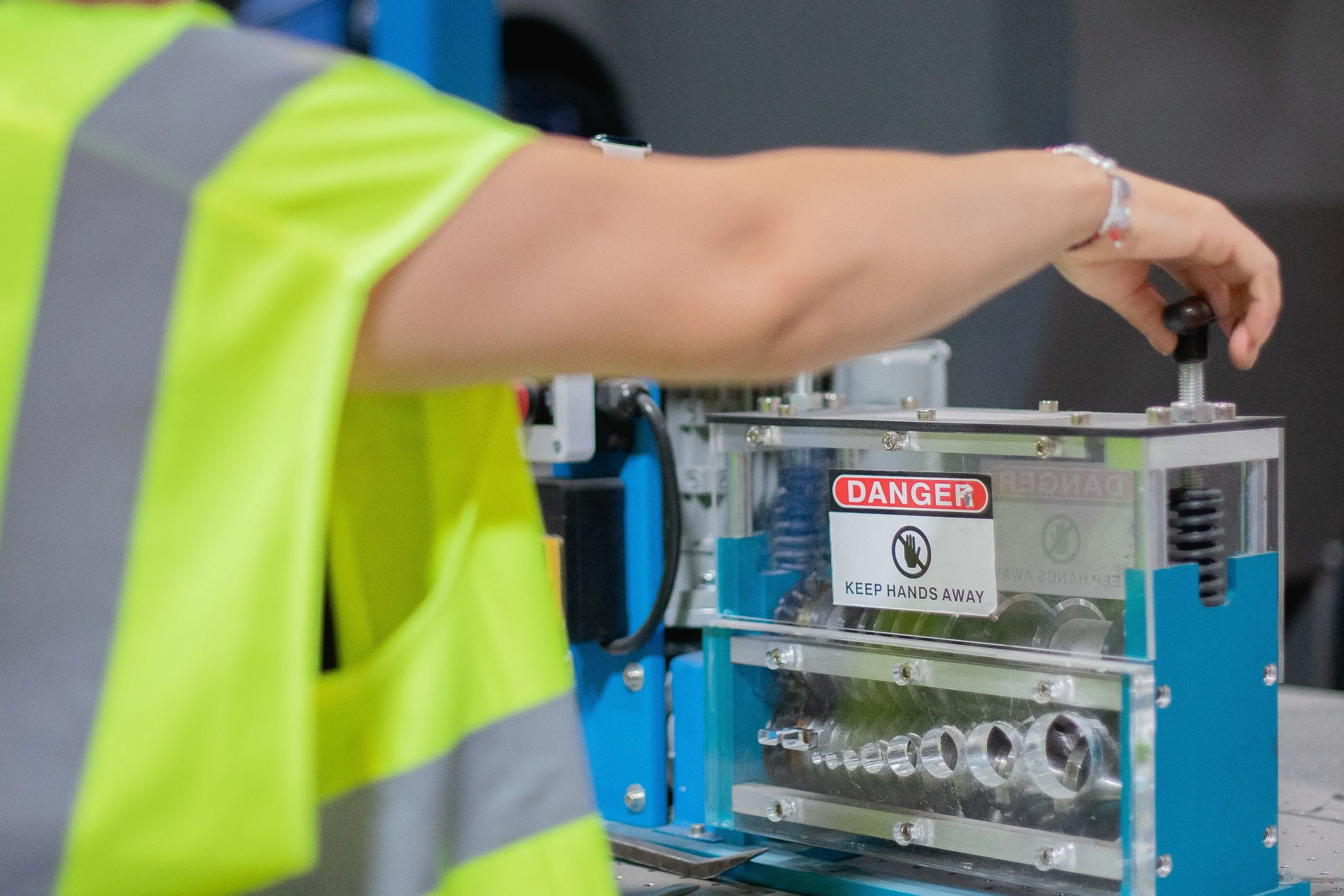
The Potential of Circular Business Models in the Industrial Electronics Sector
✔ Industrial electronics includes specialized electronic equipment used in various industries.
✔ The PaaS model offers a cost savings potential of ~36% and CO2e savings of ~8%.
✔ The PaaS model allows customers to pay for performance instead of ownership.
✔ Remanufacturing is the best circular business strategy with ~9% CO2e savings and ~16% cost savings.
✔ Remanufactured products are offered at significantly lower costs and use fewer raw materials.
✔ Remanufacturing can tap into new customer segments with limited capital.
✔ The medical device industry can benefit from leasing and remanufacturing of equipment.
✔ The PaaS model offers a cost savings potential of ~36% and CO2e savings of ~8%.
✔ The PaaS model allows customers to pay for performance instead of ownership.
✔ Remanufacturing is the best circular business strategy with ~9% CO2e savings and ~16% cost savings.
✔ Remanufactured products are offered at significantly lower costs and use fewer raw materials.
✔ Remanufacturing can tap into new customer segments with limited capital.
✔ The medical device industry can benefit from leasing and remanufacturing of equipment.
The Role of PaaS in the ICT Industry and Its Impact on Business Models and Revenue Streams
✔ Telecommunications operators are central to digitalization, providing IoT, automation, and AI infrastructure.
✔ The ICT industry focuses on the production and installation of information systems infrastructure.
✔ PaaS is the best circular business model in terms of cost and CO2e savings, with a projected 34% and 33% reduction, respectively, compared to a linear model.
✔ The implementation of PaaS benefits the most in the raw material extraction and end-of-life phases.
✔ PaaS shifts infrastructure expenses from CapEx to OpEx, which is beneficial for the high upfront costs of data centers.
✔ The ICT market is growing due to the increased use of cloud computing, big data analytics, and AI.
✔ Over-the-top (OTT) services like Skype and WhatsApp have disrupted traditional telecommunications operators.
✔ The ICT industry focuses on the production and installation of information systems infrastructure.
✔ PaaS is the best circular business model in terms of cost and CO2e savings, with a projected 34% and 33% reduction, respectively, compared to a linear model.
✔ The implementation of PaaS benefits the most in the raw material extraction and end-of-life phases.
✔ PaaS shifts infrastructure expenses from CapEx to OpEx, which is beneficial for the high upfront costs of data centers.
✔ The ICT market is growing due to the increased use of cloud computing, big data analytics, and AI.
✔ Over-the-top (OTT) services like Skype and WhatsApp have disrupted traditional telecommunications operators.
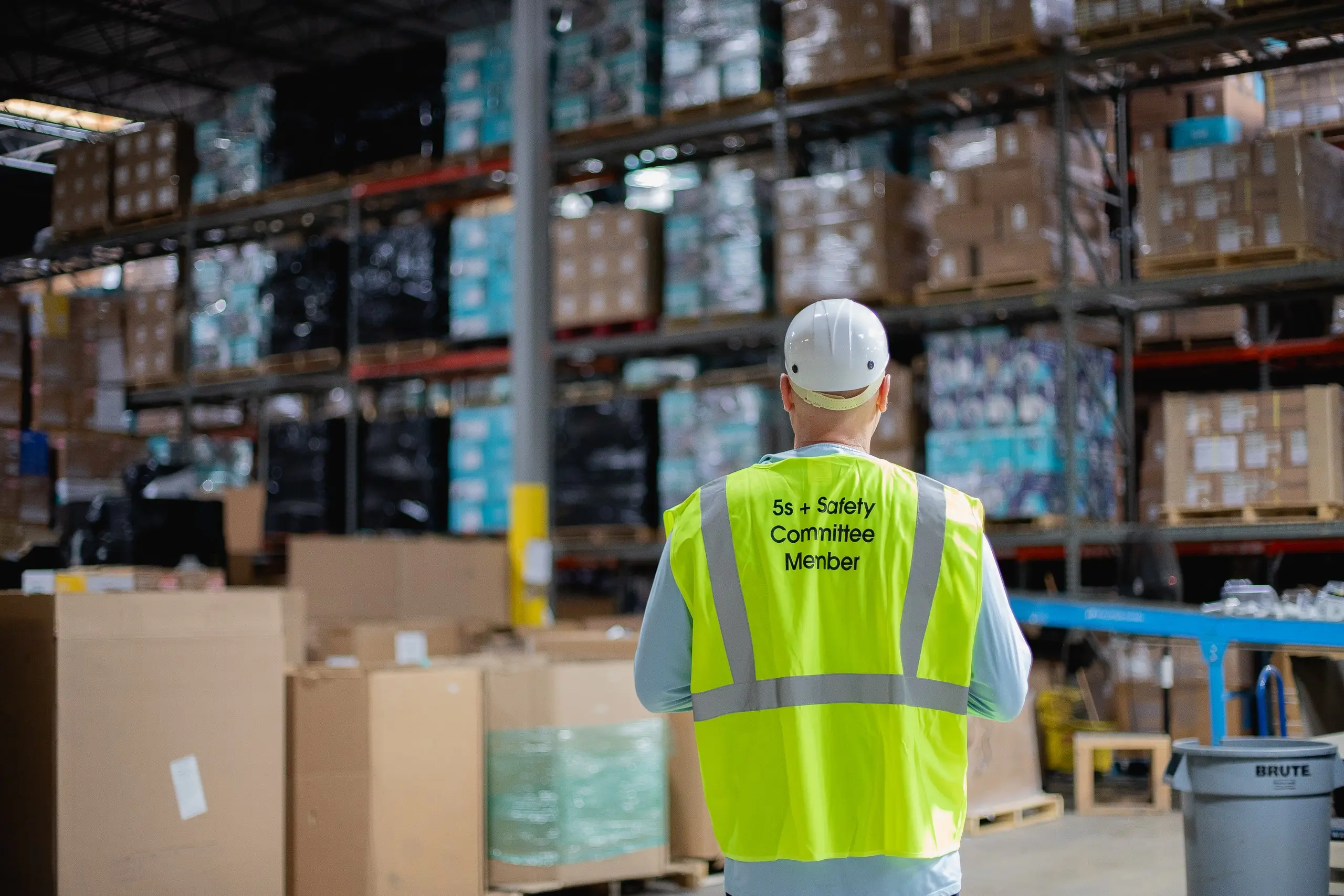
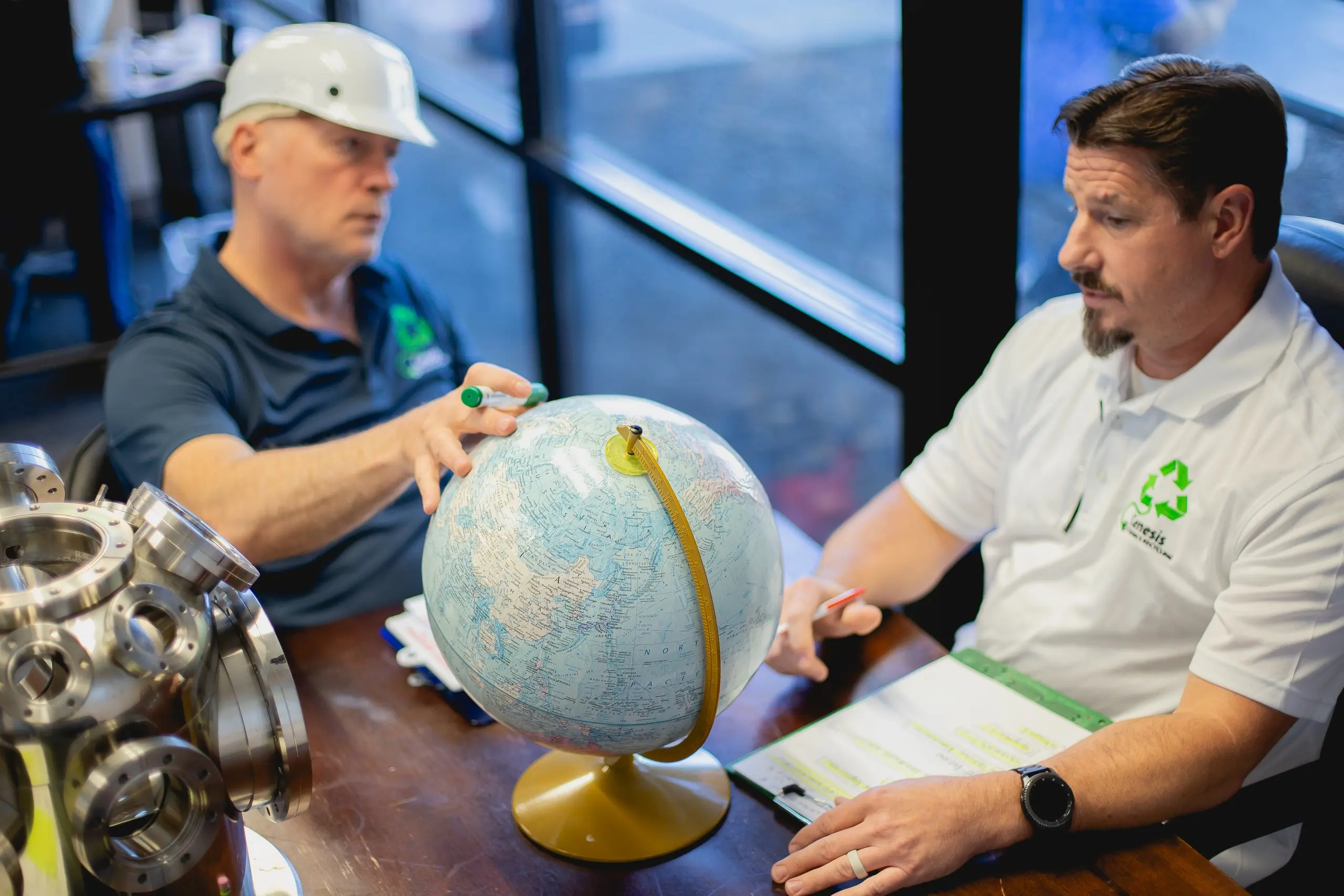
Current GHG Accounting Methods
The Greenhouse Gas Protocol does not fully capture the benefits of circular business models regarding emission reductions. This is because these standards are more suited for linear economies and struggle to account for emissions avoided through practices like product repair and durability. Organizations like the World Business Council for Sustainable Development are developing guidance documents to quantify these “avoided emissions” and communicate the CO2e savings compared to making new products.
✔ Implementing circular business models can lead to higher upfront costs for companies.
✔ The circular economy has been recognized as offering long-term sustainable financial returns.
✔ The number of private market funds with a circular economy focus has increased tenfold from 2016 to 2020.
✔ Companies may face limitations, and competitors who enter later may secure cost advantages.
✔ Circular inputs can be a practical starting point for companies to transition towards circularity.
✔ Remanufacturing requires more effort and leads to higher costs compared to circular inputs.
✔ A PaaS model offers greater returns regarding carbon reduction and cost savings.
✔ Implementing circular business models can lead to higher upfront costs for companies.
✔ The circular economy has been recognized as offering long-term sustainable financial returns.
✔ The number of private market funds with a circular economy focus has increased tenfold from 2016 to 2020.
✔ Companies may face limitations, and competitors who enter later may secure cost advantages.
✔ Circular inputs can be a practical starting point for companies to transition towards circularity.
✔ Remanufacturing requires more effort and leads to higher costs compared to circular inputs.
✔ A PaaS model offers greater returns regarding carbon reduction and cost savings.
The Key Factors That Support Circular Economy Transition
✔ Governments worldwide are driving compliance with circular economy goals through regulations and circular economy roadmaps.
✔ Taxes and subsidies incentivize companies to adopt circular economy practices.
✔ Digitalization facilitates the implementation of circular business models and resource efficiency.
✔ Taxes and subsidies incentivize companies to adopt circular economy practices.
✔ Digitalization facilitates the implementation of circular business models and resource efficiency.
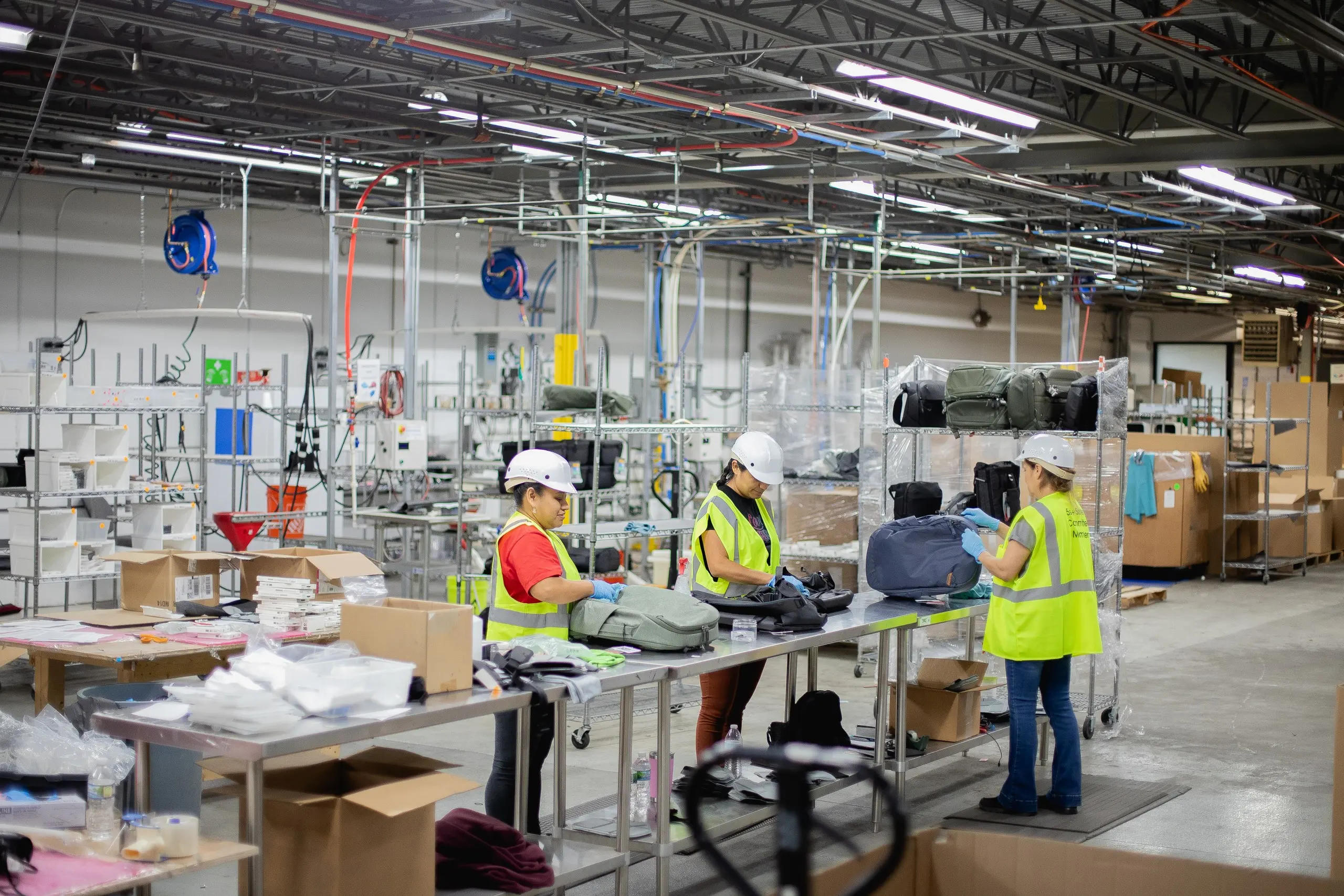

Key Regulations That Enable the Transition to a Circular Economy
✔ The French Anti-Waste Law aims to eliminate waste and pollution, banning the destruction of unsold non-food products and introducing a mandatory repairability index for electronic products.
✔ The EU Circular Economy Action Plan targets the Electronics and ICT sectors to design devices for energy efficiency, durability, repairability, and reuse.
✔ The CSRD requires companies to disclose extensive sustainability performance and related strategic implications, promoting better data transparency and circular input strategies.
✔ The French Anti-Waste Law and EU Circular Economy Action Plan contribute to the broader Circular Electronics Initiative in the EU.
✔ The French Anti-Waste Law targets a 60% increase in the proportion of repaired electronic and electric products by 2026.
✔ The EU Circular Economy Action Plan includes measures to expand the market for circular products and improve recycling rates for e-waste.
✔ The CSRD requires management to report on tonnes of hazardous materials, radioactive waste, and non-recycled waste, indirectly pressuring companies to adopt circular strategies.
✔ Regulations are vital in driving transparency, accountability, and circularity in industries, such as the extended producer responsibility rules on e-waste.
✔ The EU Circular Economy Action Plan targets the Electronics and ICT sectors to design devices for energy efficiency, durability, repairability, and reuse.
✔ The CSRD requires companies to disclose extensive sustainability performance and related strategic implications, promoting better data transparency and circular input strategies.
✔ The French Anti-Waste Law and EU Circular Economy Action Plan contribute to the broader Circular Electronics Initiative in the EU.
✔ The French Anti-Waste Law targets a 60% increase in the proportion of repaired electronic and electric products by 2026.
✔ The EU Circular Economy Action Plan includes measures to expand the market for circular products and improve recycling rates for e-waste.
✔ The CSRD requires management to report on tonnes of hazardous materials, radioactive waste, and non-recycled waste, indirectly pressuring companies to adopt circular strategies.
✔ Regulations are vital in driving transparency, accountability, and circularity in industries, such as the extended producer responsibility rules on e-waste.
The Role of Taxes and Incentives in Promoting a Circular Economy
✔ Taxes and incentives can incentivize companies to transition to a circular economy.
✔ Environmental taxes and levies based on the ‘polluter pays’ principle can increase the tax burden on polluting companies.
✔ Tax credits and incentives can reduce implementation costs and lead to more sustainable and profitable businesses.
✔ Governments are offering financial support to encourage companies to transition, such as the EU Industrial Plan and the Inflation Reduction Act in the United States.
✔ Environmental taxes and levies based on the ‘polluter pays’ principle can increase the tax burden on polluting companies.
✔ Tax credits and incentives can reduce implementation costs and lead to more sustainable and profitable businesses.
✔ Governments are offering financial support to encourage companies to transition, such as the EU Industrial Plan and the Inflation Reduction Act in the United States.


Digitalisation Enables the Transition to a Circular Economy
✔ The growth of the electronics segment is driven by the increasing use of digitalization in various sectors.
✔ Digitalization helps close material loops and boost circular business models by providing accurate product availability, location, and condition information.
✔ Digital solutions such as IoT, Big Data, and analytics enable a transition to a circular economy by improving product design, attracting target customers, and enhancing end-of-life activities.
✔ Digitalization helps close material loops and boost circular business models by providing accurate product availability, location, and condition information.
✔ Digital solutions such as IoT, Big Data, and analytics enable a transition to a circular economy by improving product design, attracting target customers, and enhancing end-of-life activities.
The Future of Electronics Is Circularity
The electronics industry must adopt a circular economy approach due to the scarcity of raw materials and supply chain disruptions. Complex electronic equipment contains up to 60 elements, and many are at risk of resource depletion. Implementing circularity, recycling, and reusing metals can reduce environmental impacts and decrease dependency on mining and processing.
The rapid growth of the electronic sector has led to significant environmental concerns stemming from the linear production and consumption model, resulting in substantial waste, resource depletion, and pollution. It is now essential for the electronic sector to shift towards circular economy principles to promote sustainability and mitigate the negative impacts of electronic waste. This business case thoroughly explores the concrete benefits and diverse strategies associated with adopting circularity in the electronic sector while highlighting real-world examples of successful implementation.
The rapid growth of the electronic sector has led to significant environmental concerns stemming from the linear production and consumption model, resulting in substantial waste, resource depletion, and pollution. It is now essential for the electronic sector to shift towards circular economy principles to promote sustainability and mitigate the negative impacts of electronic waste. This business case thoroughly explores the concrete benefits and diverse strategies associated with adopting circularity in the electronic sector while highlighting real-world examples of successful implementation.
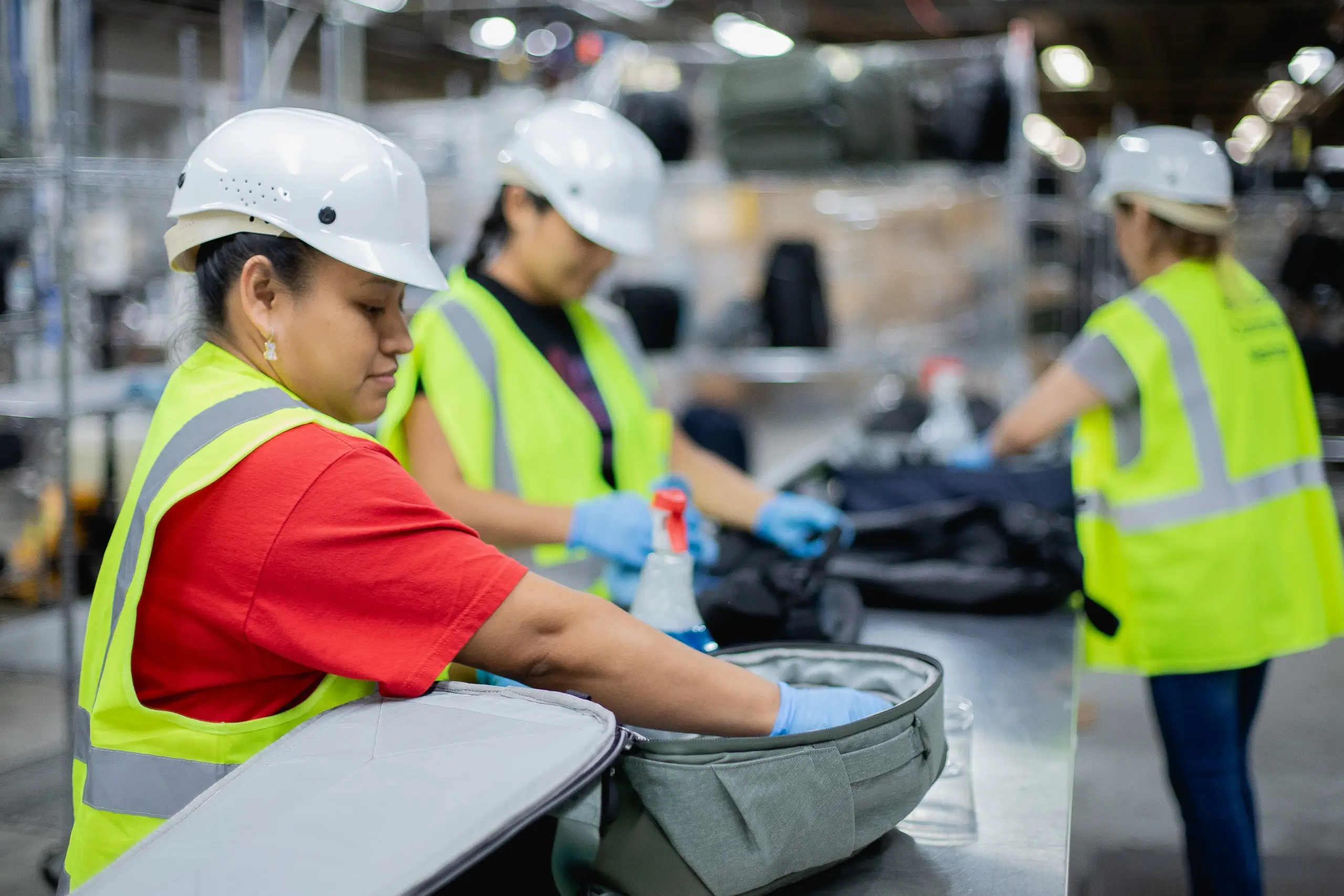

Benefits of Circular Economy in the Electronic Sector
Resource Conservation: Companies like Batch. Works in the Netherlands are at the forefront of pioneering smart and circular manufacturing, utilizing circular materials and on-demand production to reduce resource consumption significantly.
✔ Waste Reduction: Initiatives such as Winnow, a British startup, have developed smart meters for commercial kitchens that dramatically reduce food waste, demonstrating the potential for similar waste reduction in electronics.
✔ Cost Savings: Dell Technologies has been a leader in utilizing post-consumer recycled plastics in its products, showcasing how circular practices can lead to substantial cost savings and improved resource efficiency.
✔ Sustainable Innovation: The right-to-repair movement, championed by companies like iFixit, encourages product longevity by providing repair guides and parts, fostering innovation in sustainable product design.
✔ Waste Reduction: Initiatives such as Winnow, a British startup, have developed smart meters for commercial kitchens that dramatically reduce food waste, demonstrating the potential for similar waste reduction in electronics.
✔ Cost Savings: Dell Technologies has been a leader in utilizing post-consumer recycled plastics in its products, showcasing how circular practices can lead to substantial cost savings and improved resource efficiency.
✔ Sustainable Innovation: The right-to-repair movement, championed by companies like iFixit, encourages product longevity by providing repair guides and parts, fostering innovation in sustainable product design.
Integrating Genesis Advanced Demanufacturing
Genesis advanced demanufacturing plays a pivotal role in the circular economy by carefully disassembling end-of-life electronic products to recover valuable materials. This process aligns with the strategies of resource conservation and sustainable innovation.
In conclusion, embracing circular economy principles is vital for the electronic sector’s sustainability. Companies can significantly advance circularity and support sustainable business practices by implementing strategies like design for recyclability, EPR, closed-loop supply chains, consumer participation, and integrating advanced demanufacturing processes like Genesis. These examples demonstrate how businesses actively contribute to a more sustainable future by embracing circular economy principles within the electronic sector.
In conclusion, embracing circular economy principles is vital for the electronic sector’s sustainability. Companies can significantly advance circularity and support sustainable business practices by implementing strategies like design for recyclability, EPR, closed-loop supply chains, consumer participation, and integrating advanced demanufacturing processes like Genesis. These examples demonstrate how businesses actively contribute to a more sustainable future by embracing circular economy principles within the electronic sector.

Contact Our Team
From secure electronics disposal to tailored industry solutions, we’re here to help.
Connect with our team today for reliable, eco-friendly waste management services.
